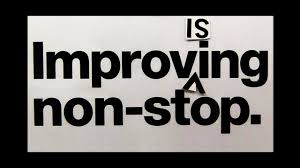Leadership is tough. Actors by nature, training and practice have to be incredible communicators in rehearsal, on stage and on set. Empathy, perceptiveness and emotional agility are vital skills for any performer – it would be impossible to fathom a Shakespearean monologue otherwise.
Whilst actors could certainly learn a lot from the discipline, organisation and decision making abilities of those in the corporate world, business leaders could also gain valuable insight from the agility of performers.
1. Make Choices & Take Risks
The odds are so stacked against any one actor making a success that by their choice of profession alone, they are extreme risk takers. Also the most magnetic performances require daring, sometimes dangerous choices to be made in terms of character and action. Risk nothing and you will only deliver a mediocre, cliched performance which is easily forgotten. Anyone remember Blockbuster Video..? “The talent is in the choices you make” – Robert De Niro.
2. Improvise
Few can improvise and roll with the punches as well as stage actors. The ability to take on new information quickly (new characters, relationships, scenes, scripts) and roll with the punches has enormous relevance for robotic, process obsessed managers. “Accept and build” is the improviser’s mantra. Accept everything, deny nothing. Since change is inevitable, managers need to understand that everything changes and roll with that fluidly instead of clinging on to old ways of doing things.
3. Understand Behaviour & Empathise
No matter what amazing innovation technology will bring us tomorrow, a true understanding of people’s behaviour, nuances and emotions will always mark out real leaders from middle managers. In fact this should be no hardship or task but borne of a natural curiosity. The skill of feeling a character’s joy and pain are part of the actor’s job description. The leader, if she is to understand an organisation and inspire them must first of all understand them and what moves them.
4. Build Relationships
Actors regularly have to create close, trusting relationships with their colleagues very quickly – imagine barely knowing somebody yet charged with portraying a loving relationship of say twenty years within a couple of hours of knowing each other. With just four weeks rehearsal before curtain up, there simply isn’t time to take your time. Jump to it, throw yourself in. This of course, takes courage – the courage to surrender ego and trust others.
5. Perform
The presentation, pitch, speech, difficult conversation etc are all moments of theatre and nothing quite expedites a leadership journey like performing with verve in those situations. Foster the storyteller within you and actively seek out every opportunity to showcase these skills.
Sartaj Garewal is the founder of Dynamic Presenting – a creative, leadership development consultancy, adapting theatre training to create leadership programs for business.
Dynamic Presenting – Enabling Powerful Communication





